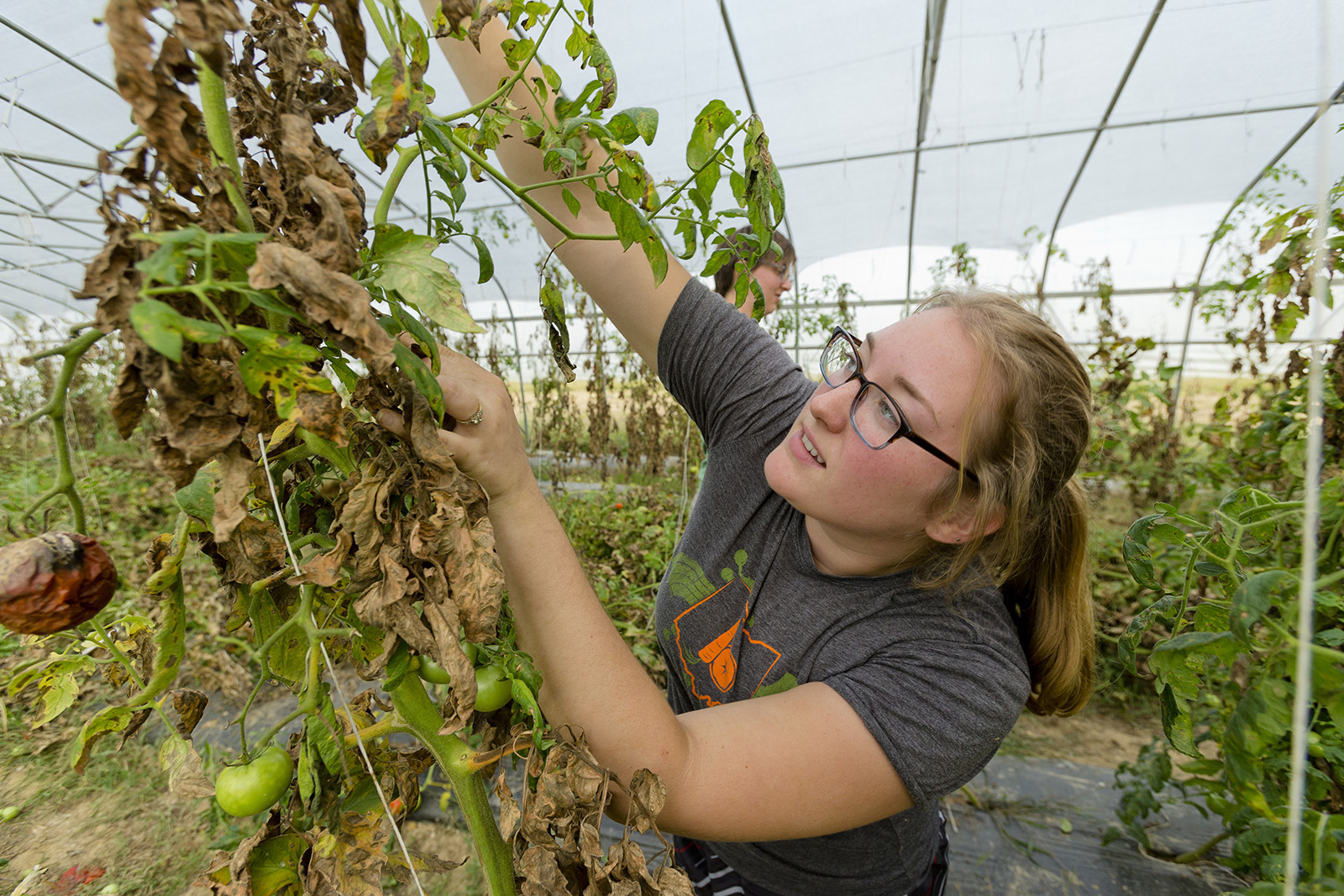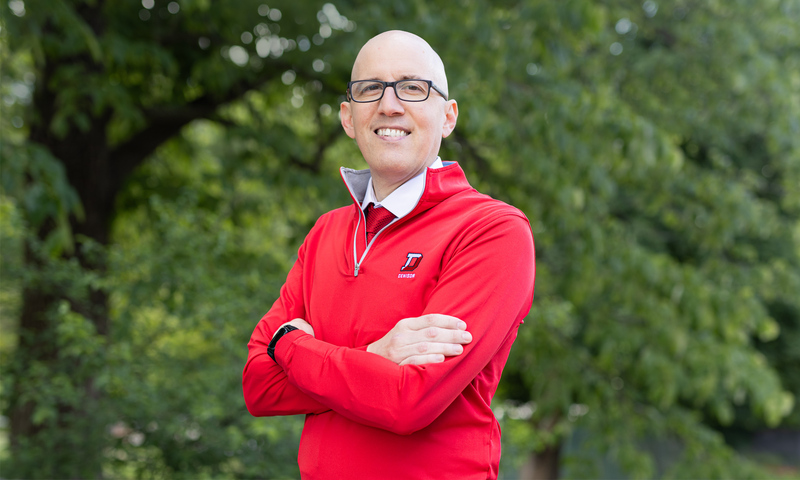“We all like to eat,” says Campus Sustainability Coordinator, Jeremy King, “every day, the choices we make about what food fills our plates can have significant impacts locally and globally.” So, the focus of the 2015 Sustainability Day was, appropriately, all about food.
“Denison has done incredible work over the last decade around sustainability. In just the last year we have reduced our carbon footprint by 25 percent,” said President Adam Weinberg.
Currently sourcing a bit more than 30 percent of food locally, the college recently developed relationships that will push that number to above 35 percent by sourcing most of its chicken from a collection of Ohio farmers.
President Weinberg has an even bigger goal in mind. He dreams of Denison sourcing 70 percent of its food responsibly.
“By trying to source 70 percent of our food responsibly, we have an opportunity to make healthier options available to students, to reduce our carbon footprint more by reducing the transportation of food across long distances and to support local farmers and businesses,” he said.
A variety of activities on Sustainability Day aimed to engage and educate the community on food sustainability and demonstrate the impact of the food we eat each day:
The Denison University Student Farmworker Alliance tabled in Slayter that day and throughout the week to highlight fair trade practices and raise awareness on farmworker injustice, especially as it relates to tomato pickers.
Students joined Bon Appetit’s Sustainability Manager Sarah Piper for a field trip to Bird’s Haven Farms, a source for local produce. Students took a tour of the farm and helped prepare a “high tunnel” for the winter growing season. And that evening, the documentary “Food Chains” was screened in Slayter, followed by a discussion on farmworker rights. Beyond the events of the day, class projects and on-going programs enhance learning around sustainability. “What gets me most excited, is the way in which Denison can be a catalyst for a regional food system that is good for both the college and the entire region,” added Weinberg.
“This is a place where we educate and inspire our students to become agents of positive social change,” said King. “We’re problem-solvers focused on the critical issues facing our world today. From supporting farmworker rights, to sustainable harvesting, to humane animal husbandry, to long-term land and water resource stewardship — responsibly sourced foods can have positive impacts on a regional and global level as well. The choices we make daily with our food can and should align with who we aspire to be.”
Check out some of the ways you can be an active participant in Denison’s ongoing sustainability mission:
- The Denison University Student Farmworker Alliance (DUFSA) advocates for Fair Trade and raises awareness on farmworker injustice. Email dusfa@denion.edu for info or to join.
- Open your eyes to Farm-to-Fork efforts. Regardless of where you eat – think about your food choices and consider eating more responsibly. When you eat on campus, just take a look at the signs – Bon Appetit labels all its locally sourced food.
- Along with that, visit the Granville Farmers Market on Saturday and support many of our local producers. Spending our food dollars closer to campus helps to support the local economy and allows for the campus community to build relationships with many of the people who put food on our tables.
- Take only what you can eat and eat what you take – become a member of the Clean Plate Club: volunteers in the dining halls on campus help students properly compost their food waste — when a clean plate is spotted there are rewards!
- So what if you can’t finish your plate? Remember to compost your food waste via the clearly labeled trash cans.
- Choose a Greenie when eating in Slayter
- For just a minimal extra charge, you can grab a Greenie at Slayter. Green containers made of recycled plastic, greenies are an alternative to the meal containers made of paper. Opt for a Greenie and return it to Slayter at any time for a clean Greenie or a refund.
- Denison donates edible leftovers to local charity through the Food Recovery Network. A variety of groups on campus regularly volunteer to help receive the food from the dining halls and drop them off at a designated location where the food is brought to community efforts like the St. Vincent Haven homeless shelter in Newark. Just 30 minutes of your time can make a big difference.
- The Big Red Buyer’s Club works with local farmers and producers to provide their goods directly to the campus such as milk, flour, cheese, coffee, beans and yogurt. To join the Big Red Buyers Club - buyersclub@denison.edu


